Sydney asylum seeker sharing harrowing stories of Iranian protests
As she can’t share the danger her friends and former classmates face when protesting in Iran, Sydney asylum seeker Naz Almasi sharing their harrowing stories.
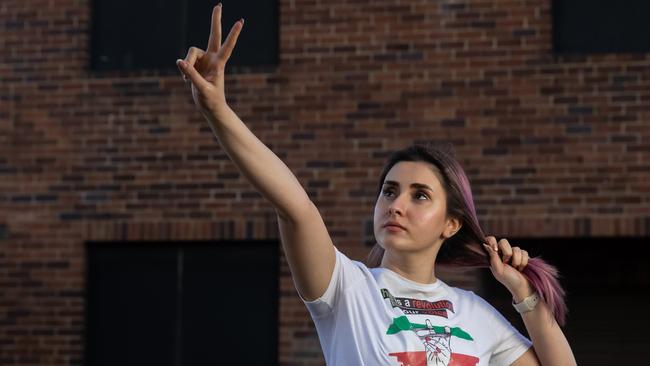
If Sydney asylum seeker Naz Almasi can’t share the danger her friends and former classmates face when protesting in Iran, the least she can do is share their harrowing stories.
She’s up night after night, monitoring her pinging devices, as the first-hand accounts roll in of the ayatollahs’ brutal crackdown.
It propels the young woman back to her own ordeal when she was arrested and jailed in 2010 while demonstrating with her mother in Tehran.
Ms Almasi, 28, still can’t bring herself to speak about what happened, except to say: “I was threatened with death.”
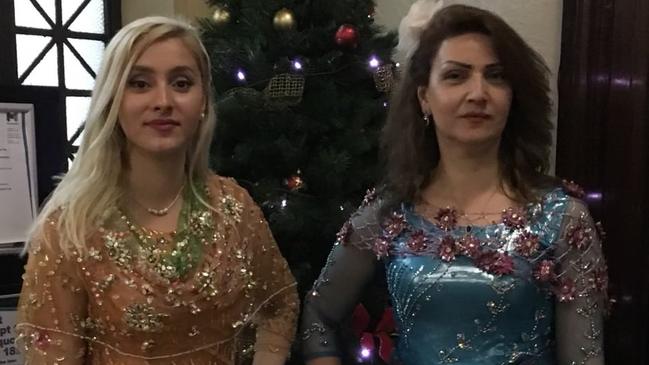
They fled the country with her father and younger sister three years later after she had another run-in with the Islamic regime, this time for plastering a university campus in the capital with flyers condemning its record on women’s rights.
Reading the gripping accounts of her friends being shot, beaten and tortured in recent weeks has unleashed what she calls a “thunderstorm” of emotion in Ms Almasi, who is still being treated for PTSD due to her imprisonment.
But she wants Australians to understand what’s at stake since the Iranian streets erupted over the death on September 16 of 22-year-old student Mahsa Amini after she was detained by the so-called Iranian morality police for allowing a lock of hair to protrude from her headscarf.
Her family says she was bashed to death in custody.
A friend in Tehran told Ms Almasi: “Oh God, we went out. There were so many people dressed in black in Mirdamad and Shariati (streets in the CBD) that you can’t imagine … as soon as someone chanted, guards were shooting and hitting everyone … it was like a war zone.”
Another friend related how the security forces fired on a peaceful gathering in Kermanshah in the country’s west.
“We didn’t chant/say anything bad. They attacked us unfairly,” the shaken protester wrote, adding: “Next to me someone got shot in the neck.”
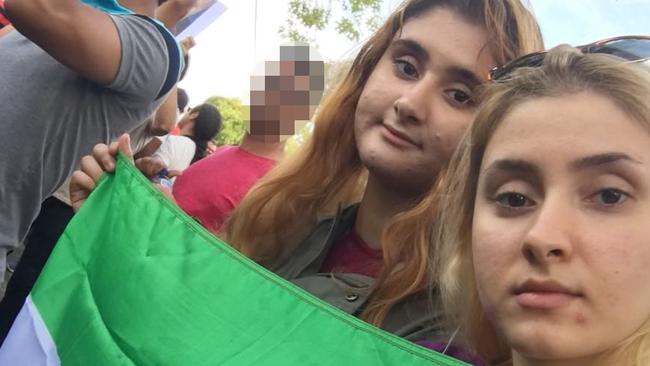
On Instagram, a demonstrator she knows appealed for people to converge on a temporary prison run by the detested Basij militia, part of the vast security apparatus controlled by Ayatollah Ali Khamenei’s personal army, the Iranian Revolutionary Guard.
“All my friends are there. Oh God, they killed a few of them,” the person posted. “Bastards are not even showing mercy to the families. They took the mothers and hit them. They’re all undercover IRGC and Basij.”
In Karaj, where she had lived with her parents, uniformed thugs went after schoolgirls. “They’re swarming into girls’ high schools, hitting them,” the message said. “Arresting and taking them … believe me. Yesterday (it) happened in Bandar (in southern Iran). Today, they went to multiple other places. Tell everyone. This doesn’t make sense with any rule in this world.”
If you are wondering how Ms Almasi is in touch when internet access in Iran is supposed to have been shut down by the regime, the answer is as easy as a VPN.
Like other members of the outspoken Iranian Women’s Association in Australia, she sets up untraceable virtual private network accounts and passes on the log-in details to those she wants to communicate with, sidestepping the firewall.
“This is how people are getting messages and video out,” she said.
But even here she’s not beyond the reach of the Islamic Republic’s wrath. Activist Nos Hosseini, whose refugee parents founded the protest group, said members’ relatives in Iran were threatened with jail – and worse – over what is being done in Australia to train a spotlight on the bloody suppression of the unrest.
Cars parked outside the family’s home in Melbourne had been tampered with or had tyres slashed, Ms Hosseini said, and they frequently received threatening letters and messages.
A cousin in Iran, aged 15, had been executed. “We have no idea whether our relatives are currently safe because we have been told to stop contacting them for their own safety,” she said.
Long-held suspicions that they were being watched by agents of the regime were confirmed recently by a chilling phone call to patriarch Jahangir Hosseini from a Farsi-speaking man: “He said, ‘We know what car your wife drives, we know what time your daughters come home’,” said Ms Hosseini, 36.
She expects further blowback from going public with their concerns. But they won’t stop speaking out – or fighting for freedom.


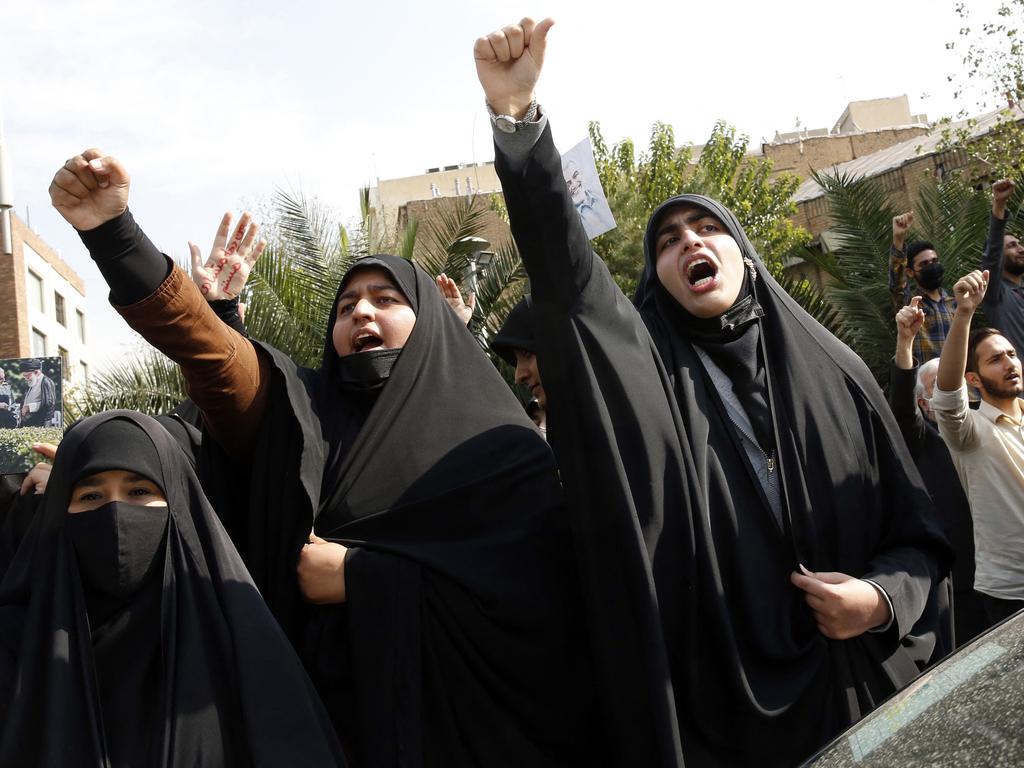
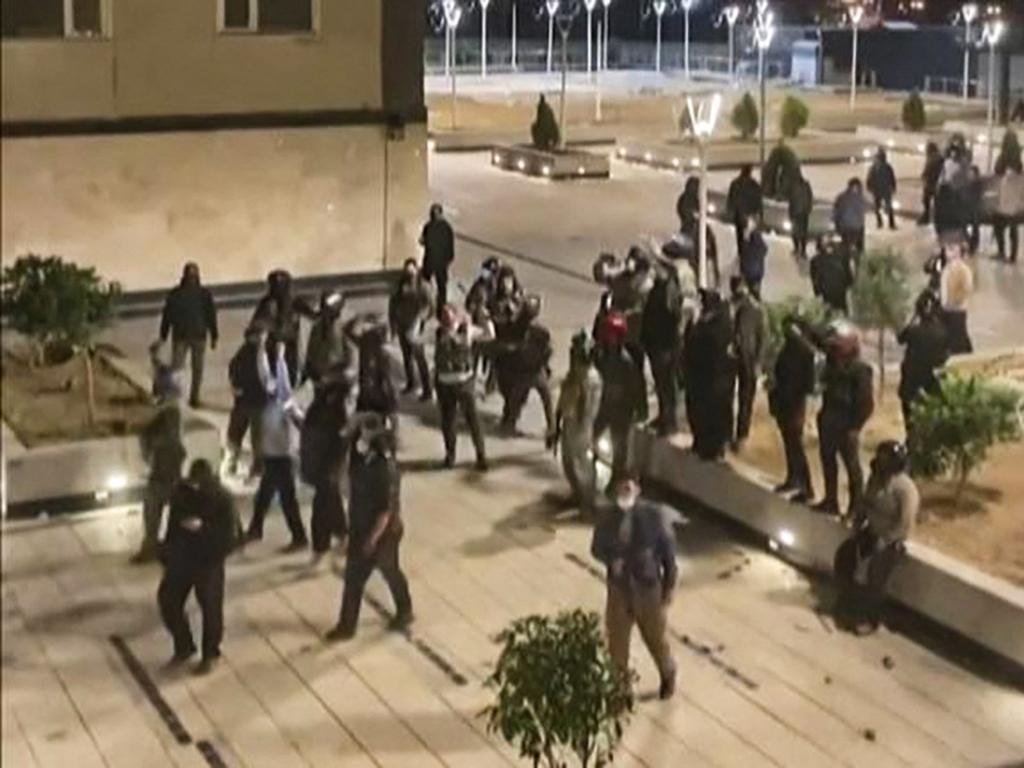




To join the conversation, please log in. Don't have an account? Register
Join the conversation, you are commenting as Logout